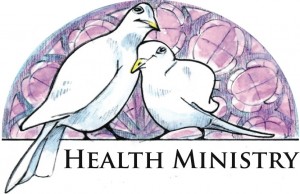 Donita Robards, RN, Parish Nurse
Donita Robards, RN, Parish Nurse
It is no secret that hospitals are trying to stay afloat through mergers and shorter inpatient hospital stays. But have you heard of observation vs. admission stays? Observation status isn’t a new concept; it’s been around for many years, but hospitals have increased their number of observation stays and the length of time a patient may be in observation. So what is the difference between an admission and an observation status? And why are we seeing such an increase in its use?
An observation stay is a way to monitor a patient closely that does not meet criteria for admission. This is subjective to the physician in the Emergency Department that performs the evaluation, which explains why a patient may be admitted at one hospital and not at another. This process may become more standardized over time, but it hasn’t happened yet. An observation status is considered an outpatient service. If a patient returns to the hospital and has to be admitted, it will not be considered a readmission because the patient was not technically admitted when they were in the hospital under observation.
What this means to the patient is that all tests are subject to the same copays that would be applied as an outpatient. It can also mean larger bills for the patient for their stay at the hospital since medications for chronic conditions are not covered. A much more serious concern for Medicare recipients occurs if nursing home care is required. Medicare requires a three day qualifying stay in the hospital prior to paying for nursing home care. Observation time served does not apply.
An admission, on the other hand, can be overturned by the hospital. Medicare can also refuse payment for an inpatient admission if it is felt that the patient should not have been admitted. Medicare can/will also refuse to pay for patients who have been readmitted for the same diagnosis within 30 days.
It is important to note that the only way to know for sure if you are admitted or under observation is to ask. While some hospitals may keep their patients and families informed, they are not required to do so by Medicare at this time. Additionally, your status may change on a daily basis. If you find that you are kept for observation, ask if you can have your medications brought in from home; some hospitals allow this, some don’t. You won’t know unless you ask.
If you feel you should be admitted, you have a right to request that your status be changed to an admission. You must make a medical argument for this. If you do need nursing home care and it won’t be covered, you can file an appeal by following the instructions in the medical summary notice. It is a long, grueling process that can take years to resolve, but it may be worth it in the end.
Healthcare is changing. It is important to be aware of how these changes may affect you or your loved ones. Know what questions to ask, and how to appeal if you disagree with the hospital’s decisions. It is still imperative that you take care of your health and work with the providers toward the goal of giving you the best possible outcome. Peace and blessings for a healthy year.
